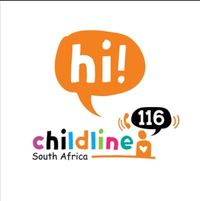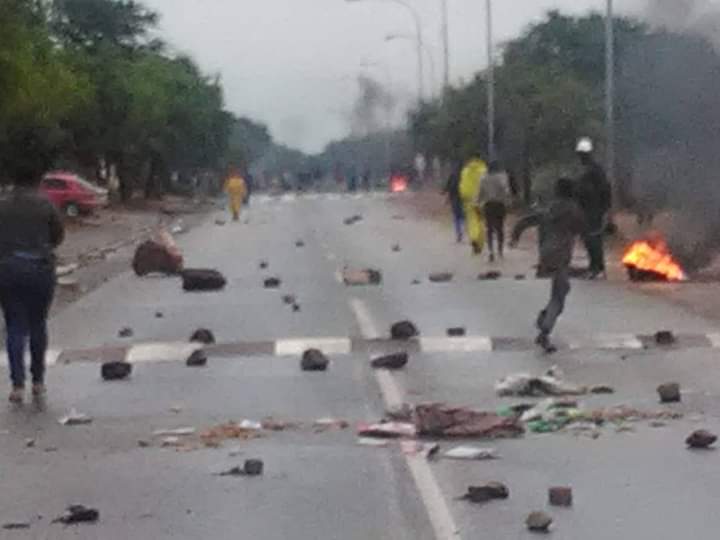Government cutting funding to designated child protection services will perpetuate the cycle of violence, undermine community safety, and thwart strategies to catch up after COVID.
Child Protection Week 2023 started yesterday, and the government has called on all South Africans to ensure that the most vulnerable in our society do not suffer abuse, saying in a statement: “It is in our hands to stop the cycle of neglect, abuse, violence and exploitation of children”. But by cutting subsidy payments, government has effectively tied the hands of child protection NGOs and is threatening the integrity of the safety net offered to children and families.
Violence is an everyday occurrence – studies show that violence is everywhere, and that most children experience or witness multiple forms of violence in their homes, schools, and communities.
Nationally, 42% of children have experienced some form of violence – including sexual abuse (35%), physical violence (35%), emotional abuse (26%) and neglect (15%) [1]. But community studies show far higher rates of exposure and trauma: Soweto (99%) [2] and Khayelitsha (80%) [3].
Childline in the Western Cape receives over 1000 calls a month to their tollfree 116 number. The helpline offers counselling and guidance, and those children in need of care and protection are referred to specialist services. According to Ricki Fransman, Director of Childline Western Cape, “Without the services provided by NGOs, thousands of children will be left without access to any kind of child protection service”. To make matters worse the COVID-19 pandemic stripped families and communities of the resources they need to protect children and raised levels of unemployment, and poverty, breaking down protective social networks. “Not only are there more children needing care and protection, but the vulnerability of families is more complex”, observes Nicolette van der Walt, National Manager of ACVV.
Government’s commitments to children
According to section 28 of the Constitution, children have rights to be protected from abuse and neglect and to be provided with social services. The active phrasing (‘to be protected from’) makes it clear that the State has a duty to take proactive steps to prevent violence from happening and to act swiftly to prevent further harm when a child has experienced violence. South Africa has introduced a comprehensive legal framework aimed at upholding and protecting the rights of children, including the National Child Care and Protection Policy, that envisages a transformation of the model of care where investment in programmes to prevent violence, like Risiha, should reduce the demand for child protection services to support and treat children who have experienced violence. According to Lucy Jamieson, Senior Researcher at the Children’s Institute at the University of Cape Town, “That investment has been inadequate, and the pandemic created additional social pressures that drive violence; hence the demand for child protection services is increasing not decreasing”.
NGOs deliver child protection services on behalf of government.
Organisations in the children’s sector have stood shoulder to shoulder with government as trusted partners in the campaign to end violence against children. For example, in the Western Cape, NGOs render 55% of all child protection services. But they are required by law and service level agreements to deliver the same standards of care as government for a fraction of the cost. On average, the subsidies received by NGOs from the provincial Department of Social Development (DSD) amount to a mere 42% of the fundings provided to government offices to render the same services.
Social work is a vocation. Staff and volunteers take on low paid jobs because their primary interest is in giving back and making a difference. Their commitment to their profession and the communities they serve, has resulted in depleting personal and organisational reserves as staff battle to maintain basic living standards. “Our staff work incredibly hard, but when salaries are so low that they struggle to survive, they become demotivated,” laments Bettie Nieuwoudt, Director of StellCARE,
“We need to get social workers out of taxis and shacks.”
Designated child protection organisations are at breaking point.
For the last five years, subsidies for child protection NGOs in the Western Cape have remained at the same level. Because of rising costs and inflation, this means a cut in real terms of between 20 to 25%. Designated child protection organisations are now at breaking point. “It’s the worst it has ever been,” said Ronel van Zyl, Director of Social Services Programmes at Badisa.
Ending violence against children requires behaviour change at an individual and societal level. This is a complex process and needs resources and input from trained professionals. However, as the gap between government and NGO salaries grows it becomes harder for NGOs to retain staff, especially at the more senior levels. High turnover rates result in a loss of institutional knowledge, and community relationships, and professional staff have less time for serving children and families, as they must focus on recruitment and training. To fill the gap, they are turning to more junior staff and community members. “We are increasingly dependent on volunteers,” Nieuwoudt explains, “Who step in at 4pm when the paid social workers go home. These people are helping the community to tackle violence and we cannot even take them out of their own poverty”.
To continue providing professional services and meeting the needs of children and communities, NGOs have drawn on their savings. But as these reserves run dry, they can no longer deliver child protection services in accordance with the norms and standards expected by the Children’s Act. Several offices have already closed, and more will follow suit as many are already running at a deficit.
If child protection services close thousands of children will be without protection
Because NGOs only receive a partial subsidy, government cannot fill the gap in child protection services that will occur when these services close. It is a simple equation – if it costs government two to three times more to provide services than it pays to NGOs to provide child protection services on its behalf, then either government must increase its own personnel budget two- or three-fold or cut protection services to children and families. Janice King, Director of the Western Cape Street Children’s Forum, expressed concern that reducing the number of child protection services will result in children and families having to wait even longer to get help. “Street children are living in exceptionally difficult circumstances. Already we are struggling to get them the protection they need. Children’s court inquiries get postponed due to lack of social workers and it can take up to three years to get a bed in a child and youth care centre.”
DSD offices and the NGOs take responsibility for service to different communities from busy metropolitan districts like the Cape Town City Bowl to remote areas like Calvina. If the designated child protection organisations close, some areas will end up as service deserts, leaving children and families without access to services, especially in rural communities. “Urgent action is imperative!” pleads Basie van Wyk, Chief Executive Officer of Badisa. “As an organisation, we do not want to stop our services, and we implore the government to prioritise the well-being of our children and extend the necessary support to NGOs like Badisa. Every child deserves protection from violence, exploitation, and abuse, and we want to give it.”
Perpetuating the cycle of violence
Academics are concerned about the long-term impact of high levels of violence in the country. “Studies from South Africa and elsewhere show that male children who experienced violence or other maltreatment during childhood are more likely to be violent towards their own children and partners in adulthood,” warns Professor Shanaaz Mathews of the Department of Paediatrics and Child Health at the University of Cape Town. “For girls, experiences of abuse during childhood increase the risk of becoming a victim of intimate partner violence and using violence against their own children.” In addition to continuing violence into adulthood, this increases the risk of other anti-social and risky behaviours such as substance abuse, erratic work history, carrying a weapon, and other forms of crime. It is therefore critical to intervene early and support children and families to break this intergenerational cycle of violence, but cutting child protection services reduces our capacity to provide that support.
But it’s not just about what happens in later life. Many children and adolescents who are exposed to violence develop externalising behaviour problems (e.g., aggression, delinquency) and poor social functioning. They are more likely to steal, skip school, use alcohol or drugs, and be involved in crime. This hurts efforts at making their communities safer.
Children who experience violence will fall further behind at school.
Recent reports indicate that South Africa has lost a decade of progress in education due to the pandemic. The Western Cape government has plans to invest R1.2billion over the next three years to get children #BackOnTrack. But to reach their full potential in the classroom, children need more than just opportunities to learn – they need care and protection from violence and trauma. One fifth of children who have been sexually abused by adults are likely to have problems with schoolwork or school attendance [1]. Children’s capacity to learn will be inhibited if they do not receive the support, they need to be safe and to heal.
Positive impact of designated child protection organisations
Designated child protection organisation are social services provided by NGOs on behalf of government. Last year the child protection organisations in the Western Cape made a huge positive impact, attending to 51,742 cases of child neglect or abuse. They were also responsible for 21,834 children in foster care, 860 children in child and youth care centres, 816 adoption cases and 6525 children in drop-in centres.
NGOs have experienced and dedicated social service professionals that are committed to the cause, despite the challenges they face. These organisations invest highly in the training of young professionals and provide supervision services to ensure quality services in an increasingly complex, poor and vulnerable environment. NGOs also bring infrastructure and a wealth of knowledge, skills,
and experience to the sector. They are connected and integrated in communities and utilise many volunteers, from board members to ground level services, to broaden and deepen their impact. Designated child protection organisations are an essential layer in the safety net for children and families. If these services close, the holes in the safety net will widen and more children will fall through.
Wicked problem
Last week Parliament passed the Eskom Debt Relief Bill approving R254billion to bailout the failing State-owned enterprise – we are told this is necessary to keep the lights on and the economy going. The irony is that this is very close to the estimated cost to the economy of violence against children (estimated at R238billion in 2017) [4]. And our failure to invest in the safety of our children will continue to impede South Africa’s economic potential for generations to come.
All line departments that provide services to children are under pressure and have had their budgets cut. The health sector, the education sector – everyone needs more funding. Putting the best interest of children first does not mean taking money from other essential services or vulnerable groups – it means recognising that social services are a priority service that needs sustainable investment and that NGOs providing these services are an invaluable partner. Allowing more children to be abused and neglected with no protection or healing will perpetuate the cycle of violence, undermine community safety, and thwart strategies to catch up after COVID.
ENDS
This press statement was released by Western Cape Child Protection Alliance on 29 May 2023.


 Download PDF
Download PDF
